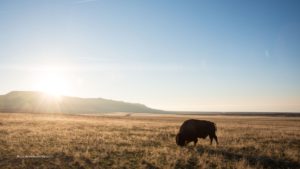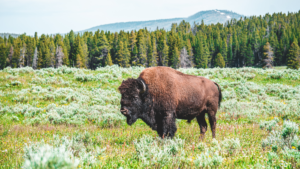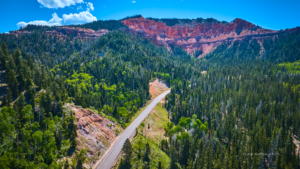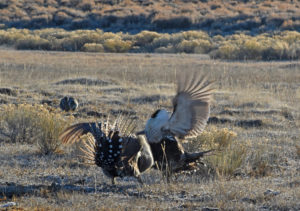For immediate release: July 24, 2025
Media contacts:
Greta Anderson, Western Watersheds Project (520)623-1878; greta@westernwatersheds.org
Chandra Rosenthal, Public Employees for Environmental Responsibility (PEER), (303) 898-0798; crosenthal@peer.org
Will Shoemaker, Advocates for the West, (208) 342-7024 x210; wshoemaker@advocateswest.org
Trump Admin Refuses to Protect Important Public Lands from Grazing Abuse; Claws Back 2024 Policy that Prioritized Rangeland Health on Sensitive Landscapes
WASHINGTON, D.C. – The Trump Administration has quietly rendered “inactive” a Bureau of Land Management (“Bureau”) policy directive—Instruction Memorandum 2025-004—to prioritize environmental monitoring and analysis of livestock grazing on public lands in sensitive habitats. The rescinded policy directed Bureau field offices to complete long overdue National Environmental Policy Act (NEPA) reviews on grazing allotments within areas critical to at-risk wildlife and ecosystems including habitat for the imperiled greater sage grouse and bighorn sheep.
“By withdrawing this policy, the Trump Administration is saying it absolutely doesn’t care to know about the impacts of grazing on sensitive species, special places, or sage grouse,” said Greta Anderson, Deputy Director of Western Watersheds Project. “This was a solid plan to address decades of systematic failures in the grazing program but it’s clear that the agency would rather continue giving away our public lands for grazing-business-as-usual.”
The Directive, signed in December 2024, prioritized environmental monitoring and analysis of public lands grazing allotments in sensitive habitat. The policy was designed to resolve the extensive backlog of grazing permit analyses on public lands, and prioritized areas with sage grouse, bighorn sheep, and threatened and endangered species.
The Bureau of Land Management has a long acknowledged backlog of grazing permits requiring NEPA. The problem appears to be getting worse. Data from the Western Watersheds Project shows that the share of BLM grazing-allotment renewals issued without any NEPA analysis increased from approximately 28% in 2013 to 54% by 2021.
“We are so deeply disappointed that the Trump Administration shelved a policy that simply directed BLM to do its job—evaluate the impacts of livestock grazing on some of the West’s most sensitive public lands. Walking away from this directive means walking away from science, from public accountability, and from wildlife,” said Chandra Rosenthal, PEER Public Lands Director.
Western Watersheds Project and PEER, represented by Advocates for the West, sued the Bureau in September 2023 for violations of the Federal Land Policy and Management Act (FLPMA) and its failure to complete required land health evaluations. Because the Directive resolved many of these issues, the lawsuit was voluntarily dismissed in December 2024.
“The Bureau’s agreed-upon direction was simple—look at livestock grazing impacts for these allotments that are home to some of the West’s most imperiled wildlife and valued resources, as the law requires,” said Laurie Rule, Senior Attorney at Advocates for the West. “It’s clear where the Trump Administration’s priorities lie, and it’s not thriving wildlife, healthy public lands, or transparency.”
####
See Congressional Research Service report citing BLM backlog of 7,000 permits without NEPA review.
See WWP, PEER, Advocates for the West lawsuit complaint holding BLM accountable to managing healthy public lands.
See the NEPA story map of failed grazing management in the West here.






